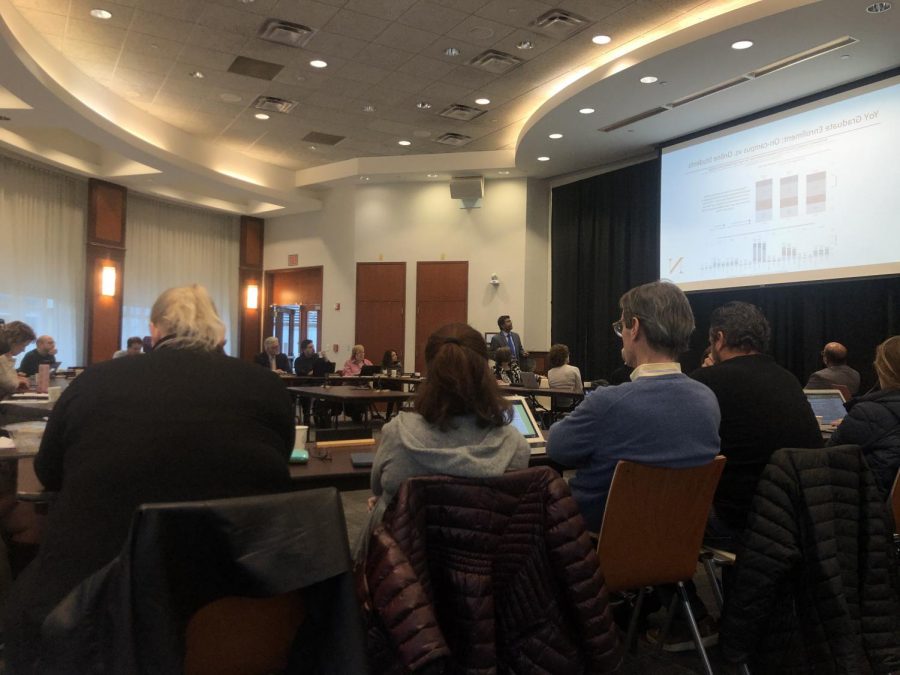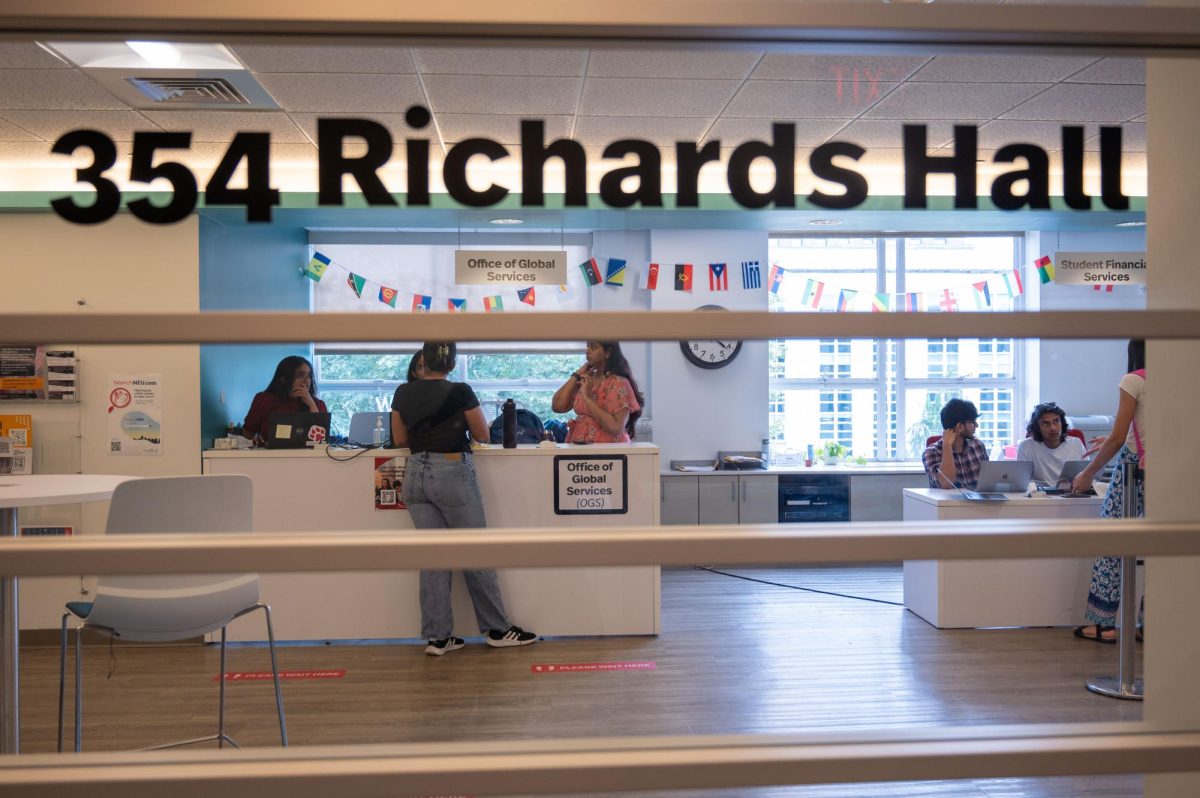Faculty senate votes to create Mechatronics major
The faculty senate met in Raytheon Amphitheater on Feb. 5.
February 11, 2020
At their meeting Feb. 5, Northeastern’s faculty senate discussed Northeastern’s new Portland, Maine campus, enrollment management and voted to add a Bachelor of Science in Mechatronics.
The faculty senate voted in favor of creating a new major in Mechatronics within the College of Professional Studies. The new Bachelor of Science degree’s curriculum would repurpose some courses from old CPS programs that had been “sunsetted.”
While there was some pushback from some faculty members in the College of Engineering who felt the new program had not been discussed with enough of their faculty, most faculty senate members voted in support, and the motion passed.
James C. Bean, provost and senior vice president for academic affairs, updated the meeting’s attendees on the Roux Institute, explaining that it would soon be announced that some faculty members at the Boston campus will move to the Portland campus.
Bean also said that while there would be no accredited programs at the Roux Institute until September, non-credited executive training programs run through the Roux Institute’s corporate partners could begin as early as May or June.
The corporate partners will also help achieve one of the Roux Institute’s missions: to stimulate Portland’s economy through the tech industry.
“These aren’t household names, but they are some of the fastest-growing companies in the country,” Bean said.
Vice President for Enrollment Management Sundar Kumarasamy also gave a presentation updating the faculty senate on undergraduate and graduate applications to Northeastern for Fall 2020.
Kumarasamy noted that there was a substantial increase in undergraduate applications to Northeastern, and that this increase came from overwhelmingly “high talent students.”
According to Kumarasamy, while the co-op program has always been a draw for applicants, it’s Northeastern’s relatively new combined majors that deserve the credit for the jump in applications.
While applicant numbers have increased, Kumarasamy stated that the university must continue to pay attention to the number of admitted students that opt to attend other colleges instead of Northeastern.
The number of admitted students in the top 20 percent that choose to go to schools other than Northeastern is increasing. This group is “predominantly choosing [colleges] based on reputation,” Kumarasamy said.
Additionally, 43 percent of Northeastern’s admit pool will choose not to go to a private institution, and this percentage is on the rise. More students are making a “value for price decision,” Kumarasamy said.
He also stressed that if Northeastern continues to raise tuition, the school will continue to lose applicants to public universities. “We used to think of [our] competitors as all privates,” Kumarasamy said.
Finally, Kumarasamy discussed the growing international student population, noting the importance of being aware of potential problems that may bring, like on-campus housing shortages.







